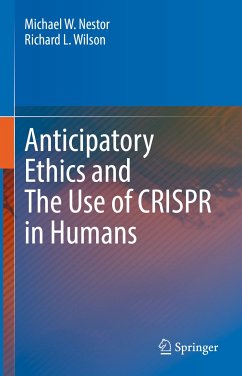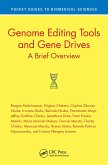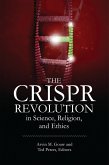Can we move forward with the use of CRISPR in humans without a well-formed policy and ethical framework to support it? In this new book, neuroscientist Michael W. Nestor and philosopher Richard Wilson argue that the answer is a resounding "no." Does an ethical and policy program need to be restrictive concerning the use of CRISPR in humans? Nestor and Wilson argue that, although the future of gene editing in humans is inevitable using CRISPR technologies, the scientific, policy, ethics, and clinical communities must work together to provide the necessary frameworks to help CRISPR flourish as an essential tool to treat human disease. To achieve the most inclusive, equitable, and ethically sound use of CRISPR in humans, the scientific/policy/clinical community must involve the most comprehensive set of stakeholders possible, including the lay public. This book sets a framework for shared understanding and discussion across disciplines with an appeal to scientists and non-scientists alike. The authors urge all stakeholders to engage in active dialogue about the appropriate context for using CRISPR and other gene-editing technologies in humans. It provides policy analysis and recommendations for assuring the most inclusive, equitable, and ethically sound use of CRISPR in humans, exploring its positive potential to treat mental disorders and the potential to induce other cognitive enhancements.
Dieser Download kann aus rechtlichen Gründen nur mit Rechnungsadresse in A, B, BG, CY, CZ, D, DK, EW, E, FIN, F, GR, HR, H, IRL, I, LT, L, LR, M, NL, PL, P, R, S, SLO, SK ausgeliefert werden.
Hinweis: Dieser Artikel kann nur an eine deutsche Lieferadresse ausgeliefert werden.









